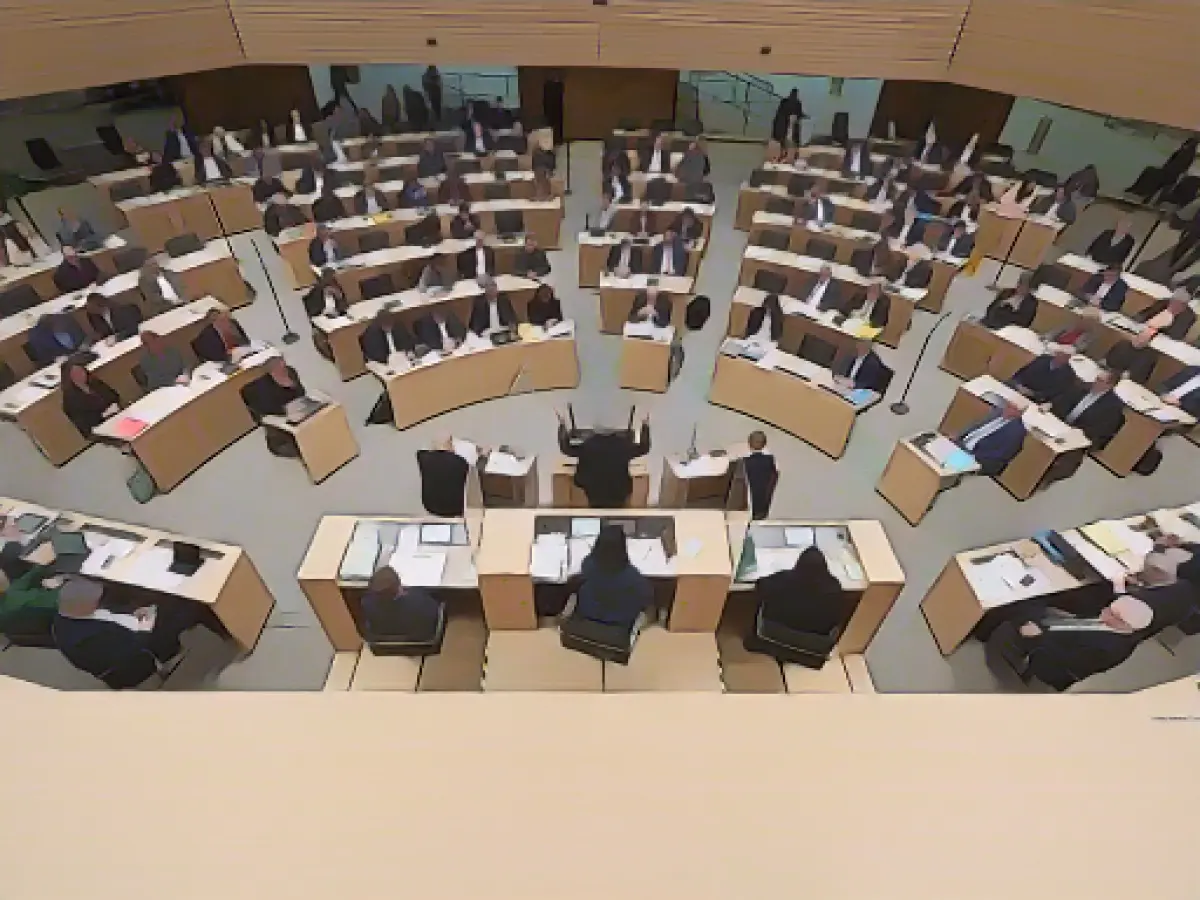Larger Constituencies Don't Necessarily Mean Less Connection with Citizens
Contrary to popular belief, the Enlargement of constituencies in Baden-Württemberg doesn't necessarily result in a diminished sense of proximity to citizens, according to researchers. In a study undertaken by the University of Mannheim, political scientist Thomas Gschwend summarized the findings stating, "The theory that expanding the size of constituencies — in terms of area or eligible voters — leads to detrimental consequences cannot be substantiated."
Survey findings from 2,501 Baden-Württemberg citizens, including representatives from both large and small constituencies, revealed a majority satisfaction with the state's democratic processes. Conversely, fears that a newly revised electoral law would inflate the number of parliamentarians went largely unfounded.
The survey participants were asked to rate their satisfaction with democracy on a scale of 0 to 10. In an overwhelming majority, people gave favorable ratings to the current democratic landscape in Baden-Württemberg, with only 4% expressing deep dissatisfaction.
Perceptions of representation were another noteworthy aspect of the survey. Respondents were asked if they felt politicians disregarded their opinions, and a significant proportion revealed a feeling of inadequate representation. Over 31% of respondents reported feeling greatly underrepresented, with fewer than 10% viewing their representation as strong.
The size of constituencies had little bearing on these responses, the researchers found, maintaining that larger constituencies didn't positively or negatively influence perceptions of proximity to political elites.
Recent conversations about revising Baden-Württemberg's election laws revived the discussion of introducing Germany's two-vote system to the state's parliamentary elections. Implementing this change would potentially swell the number of parliamentarians from the current 154 to 200.
With opposition to larger constituencies based on the premise that proximity to citizens decreases in gauger electoral districts, researchers from the Mannheim Center for European Social Research (MZES) contend that the survey results debunked this notion. "Our research shows that constituency size has no impact on politics being perceived as near and dear to the populace," Gschwend emphasized, "Citizens in larger constituencies are just as content with the elite and the state of democracy as those in smaller state parliamentary constituencies."
The FDP of South-West recently submitted a petition to the Ministry of the Interior, backed by 10,000 eligible voters from Baden-Württemberg, advocating preventing an "XXL state parliament" by reducing the number of constituencies and direct mandates from 70 to 38. The petition calls for obtaining the signatures of at least one tenth of Baden-Württemberg's eligible voters — equivalent to 770,000 — to force a referendum in the event that the state parliament refuses to amend the electoral laws.
West Germany's constituencies vary significantly in terms of population density and area. For instance, the Freudenstadt constituency holds approximately 86,500 eligible voters while the Böblingen constituency accommodates nearly double that number (130,000). Regarding geographical area, constituencies such as the Stuttgart I constituency span around 40 square kilometers, while the Main-Tauber constituency spans around 1,304 square kilometers, more than 30 times the latter's size.
Average constituencies in Baden-Württemberg encompass around 110,000 eligible voters and 500 square kilometers. Despite the prospect of a larger maximum parliamentary size, the researchers found no indications of reduced citizens' perceptions of proximity to their representatives in larger constituencies.
The Impact on Representation
Germany's mixed-member proportional representation (MMP) system, which relies on smaller constituencies for direct representation and larger, state-level lists for proportional representation, alters how citizens feel represented. While guiding principles of direct representation suggest better representation in smaller constituencies, the MMP system balances prospects of direct representation with proportional representation, limiting its full effect.
Studies on representation in MMP systems often investigate the relationship between the two elements while considering their impact on citizens' perceptions. While research on Baden-Württemberg's specific impact remains scarce, broader national trends could provide valuable insights while underscoring the need for region-specific research.
It's essential to stress that the relationship between the size of constituencies and citizens' perceived proximity to their representatives is a complex issue, influenced by various factors like the MMP system and direct-election models. While popular perception often emphasizes the detrimental effects of larger constituencies, recent research based on a study from the University of Mannheim questions the accuracy of that claim.








